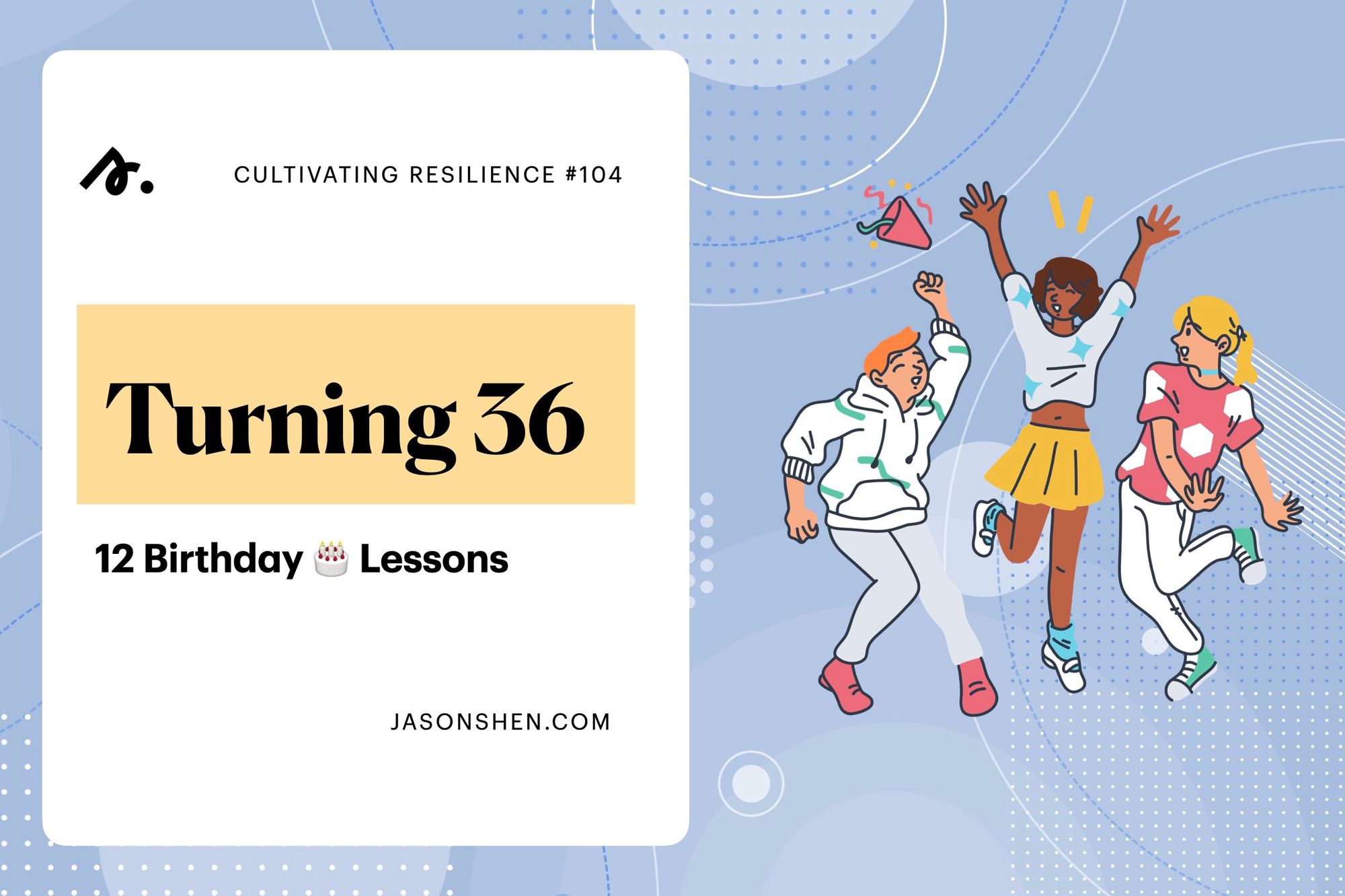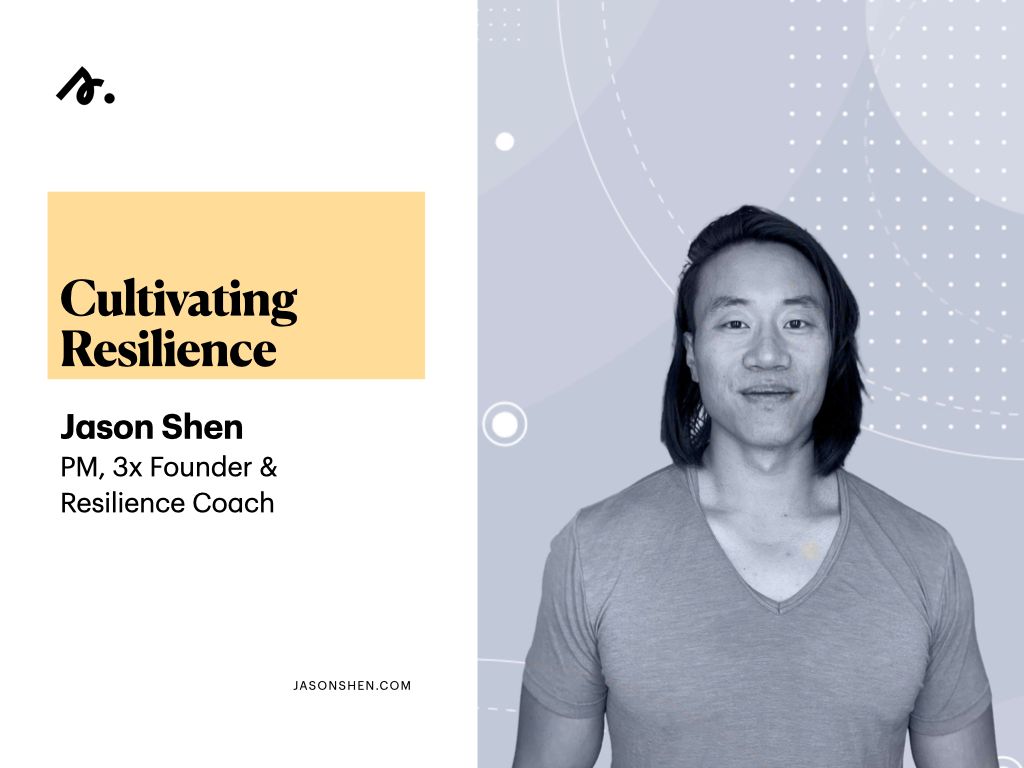Every year I use my birthday as an opportunity to reflect on what I’ve learned over the past 12 months. Self reflection is one of the most important skills one can develop to drive personal and professional growth and this practice has served me well over the years.
I’ve collected some of the specific lessons from each year (they range from year to year from just one to dozens) and will continue updating this page as time goes on.
36: What are you setting yourself up for? "When we remember that we're doing current thing A because it sets us up for future thing B, then we can simply adapt a new or better path to thing B." (2022)

35: 2 questions — "What problem are you trying to solve? Is this the most important problem you could be solving right now?" (2021)

34: Skipped — was distracted by a global pandemic (offered a series of free coaching calls instead)
33: You know enough — “It turns out pretty much everyone is just making shit up as they go” (2019)
32: Power Law — “Most things in life follow a power law, especially media and products. You have to work hard every time but only some of what you do will be a big hit.” (2018)
31: Validation — “People don’t actually want feedback or advice — they just want to feel validated and praised about what they’ve already done or are planning to do.” (2017)
30: Age Anxiety — “In retrospect, the anxiety was unwarranted and thankfully in my old(er) age, I’ve gained the wisdom to see that.” (2016)
29: Work takes many forms — “Just because it isn’t on your resume doesn’t mean it’s not real work.” (2015)
28: You have to play the game — “Over many years of starting things, building things, and marketing things, I’ve come to appreciate “the game”.”(2014)
27: Underdog — Sometimes going for a high-risk / underdog situation can have a good expected outcome since failure won’t have a high cost (2013)
26: Value of Time — “The only truly limiting factor is time. Capital, people, ideas, resources – you can acquire more of those. But time? That’s the only constant factor.” (2012)

